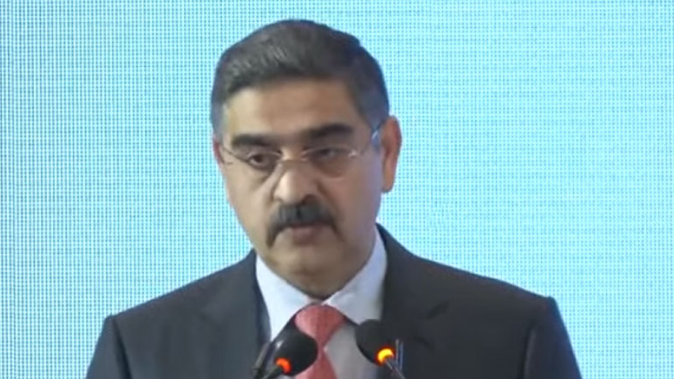Islamabad (Web Desk): Caretaker Prime Minister Anwaar-ul-Haq Kakar on Wednesday called for greater collaboration at the international level to effectively respond to health emergencies.
“Our commitment should extend to establish global frameworks that facilitate information sharing, joint research and collaborative strategies for an effective response during emergencies,” the premier said while inaugurating the two-day global health security summit in Islamabad.
PM Kakar said that beyond national strategies, we need to explore mechanisms for global funding that can support a nation in need, ensuring nobody is left behind in our pursuit for health security, the Radio Pakistan reported.
He noted that the establishment of the international network of health laboratories sharing best practices and resources could serve as a linchpin in our collective defence against emerging threats.
The prime minister said new diseases like COVID-19 and climate induced incidents such as the historic floods of 2022 in Pakistan are affecting our citizens' health and causing social and economic impact. He emphasized the importance of integrating climate resilience into the health policies and systems.
PM Kakar stressed for a shared vision where health security is not a privilege but a universal right.
“COVID-19 has taught us invaluable lessons about the importance of collaboration, preparedness and unified approach,” he said, adding that our collective vision should not be just about reacting to crises but forging a proactive and interconnected global health ecosystem.
PM Kakar also emphasized the need for establishing international standards for food safety, harmonizing regulations to ensure the highest level of protection for population worldwide.
In his remarks, Minister for National Health Services Dr Nadeem Jan said Pakistan has been an ardent supporter of global health security, steering collaborative efforts for a safer and more secure world.
“This summit reflects our commitment and sensitivity to the health needs of everyone especially the downtrodden. Our choices and decisions of today based on equity will usher in a lasting triumph for humanity,” the minister said.
Addressing the Summit, Caretaker Foreign Minister (FM) Jalil Abbas Jilani said Pakistan supports amendment to the International Health Regulations of 2005 and adopting a pandemic instrument that is based on principles of equity, inclusiveness, global solidarity and international cooperation.
He said Pakistan continues to collaborate with international partners and the World Health Organization in shaping a resilient system through enhanced international cooperation.
FM Jilani said we can better prepare ourselves to respond to global health risks and emergencies by sharing of knowledge and resources.
He said access to technology is also pivotal that can enable large scale production of life-saving medicines and vaccines, required for an effective response to pandemic and health emergencies.
The minister said the COVID-19 pandemic underscored the urgent need to fortify international cooperation in addressing global health threats.
He said there is also a need to develop a strong disease surveillance system across the human and plant spectrum to early detection and spread of the disease.
FM Jilani also stressed on the need to streamline coordination at the national level in developing national response to health-related emergencies. He said we need to focus on preventive measures, universal health coverage and insurance.
Addressing the Summit, United States (US) Ambassador to Pakistan Donald Blome thanked Pakistani leadership for its efforts to tackle one of the most significant challenges of global health security system, the international community is facing.
He said that coordination with partners is the most effective way to address regional and global health threats.
The US envoy said that a strong and resilient public health system can prevent, detect and respond to emerging infectious diseases. He said countries can accomplish with political will and determination to invest in global health security.
Donald Blome said the US will be a strong partner in robust discussions in identifying strategies and steps to address critical priorities of global health security system.
Speaking on the occasion, Head of the Saudi delegation and Minister for Health Dr Hani Jokhdar stressed the need to keep global health security agenda as top priority to the implementation of the public health policy.
He said that Saudi Arabia always believes in the execution of global health security preparedness and resilience. He urged the member countries of global health security agenda to put special efforts to fight the silent pandemic.
Dr Hani Jokhdar acknowledged the role of Pakistan in accelerating progress for making the world, safe and secure from infectious disease threats.
Head of delegation from Afghanistan Dr Qalandar Ebad said tackling the challenge of infectious diseases needs collective efforts from across the globe. He said Afghanistan is trying its best to eradicate Polio virus from the country.
Addressing the Summit, Head of Kyrgyzstan delegation Dr.Aleem Qaidar said the most valuable asset of human civilization is life and human health. He stressed the need to develop strategies to ensure the safety of citizens.
The leader of Turkish delegation reiterated his government's commitment to improve health security and strengthen health approach.
Head of delegation from Tajikistan Mohsin Ghafoor, in his remarks, said the pandemic COVID-19 helped us learn lesson as to how important are our combined efforts to tackle global health challenges.
He lauded the efforts of Pakistan for holding global health security Summit for preparedness against future health challenges.


